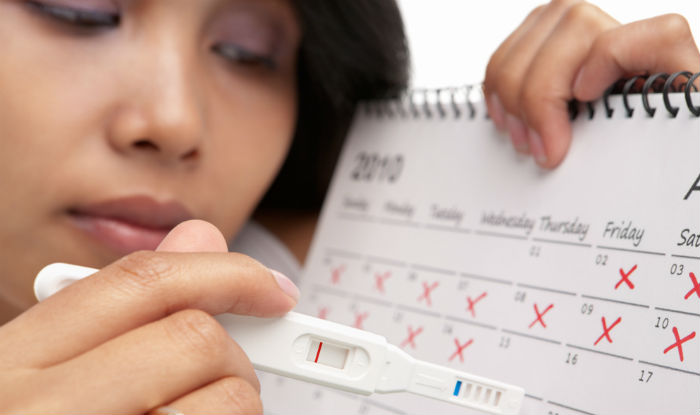How to Regulate My Period and Get Pregnant

Menstrual cycle is an important part of life. It is a natural process that happens in the reproductive system of females to prepare for a possible pregnancy. It includes several changes in the body of a woman. During a menstrual cycle, the egg is released from one of the ovaries and this process is known as ovulation. With ovulation, the body prepares for a possible pregnancy but if fertilization doesn't happen, the uterus lining sheds and comes out of the vagina. Normally, women have 11 to 13 menstrual cycles in a year but irregular period may decrease the number of menstrual cycles and hence fewer chances to conceive. It is more difficult to get pregnant with irregular periods or abnormal bleeding.(ALSO READ What are the symptoms of pregnancy at 1 week? Early signs and symptoms of pregnancy).Also Read - Fat to Fit: Hrithik Roshan's Mother Pinkie Roshan's Fitness Secrets Revealed | Watch Video
It is important to know the reason behind the irregular periods as it will affect the woman's ability to conceive. Some of the common conditions that could cause irregular periods include abnormalities in pituitary or adrenal glands or thyroid problems. Sometimes, irregular periods may be because there is no ovulation and without ovulation, a woman cannot conceive. Medical assistance is required in such cases. Knowing the reason for the irregular period can help in regularizing the menstrual cycle and help you in conceiving. Also Read - Pregnancy Health Tips: Simple And Safe Exercises For Pregnant Women To Follow In First Trimester, Watch Video
What can cause irregular periods?
Irregularity in menstrual cycle is normal during illness or stressful time and in most cases the periods becomes regular once the illness or the stress is resolved. Some women may experience chronic irregularity and it is caused due to hormonal imbalance. One of the common reasons for hormonal imbalance in women is Polycystic Ovarian Syndrome (PCOS), a medical condition. PCOS symptoms include stimulation of many follicles that increases the level of estrogen in the body without the release of an egg (no ovulation). Increased levels of estrogen cause thickening of uterine lining, which then sheds resulting in a period without the ovulation.(ALSO READ: Foods to eat during pregnancy: 15 power foods to ensure good health for mother and baby). Also Read - Dengue Outbreak: Dengue Cases Rise In Children At An Alarming Rate, Know Reasons And Precautionary Measures Here | Watch Video
Another reason for hormonal imbalance are lack of proper nutrition, physical stress and excessive exercise. Doing strenuous exercises for three or more hours every day can make it difficult for the brain to trigger the production of hormones required for the development of follicle and this could lead to deficiency of estrogen. Eating disorder can lead to irregular or absence of menstrual cycle.
Being overweight and underweight also increases the risk of irregular menstrual cycle. Overactive and underactive thyroid gland can also cause irregular periods, which may indicate that the ovulation process is inconsistent. Less ovulation means fewer opportunities to conceive.(ALSO READ Why we gain weight in pregnancy: Here's why there is a weight gain during pregnancy and how much is normal pregnancy weight gain).
Tips to improve the chances of getting pregnant with irregular menstrual cycle

Improve the chances of getting pregnant
First and foremost – know that your periods are irregular and consult your doctor to restore the regularity of your periods. The increased ovulation frequency will increase the chances for getting pregnant. Here are some more tips to get pregnant with irregular menstrual cycle.
1. Find your fertile period
It is difficult to find the fertile period when you have irregular menstrual cycle. The most fertile period is the last two to three prior to ovulation. You can get blood tests or chart temperature to confirm the ovulation period and have intercourse during the fertile period. (ALSO READ How to get pregnant: 5 tips for women to conceive faster).
2. Attain normal weight
In case you are underweight, you need to increase your weight as low body fat is often associated with low levels of estrogen, which can lead to irregular cycle. If you are overweight, lose some weight by exercising. It is beneficial especially if you have PCOS.
3. Have a well-balanced diet
It is important to eat healthy, well-balanced food. Instead of fast food or processed food, try to consume fruits, vegetables and whole grains. Try to avoid eating food that contains high levels of fat and carbohydrate.(ALSO READ How accurate is the home pregnancy test: Everything you should know about home pregnancy test kit).
4. Exercise regularly
Proper functioning of the body is important for the release of proper hormones and exercising regularly to keep your body healthy. Although, excessive exercise can be detrimental for fertility, moderate and regular exercise is essential for healthy body and regular menstrual cycle.(ALSO READ Why do you get morning sickness during pregnancy: Everything you should know about nausea and vomiting during pregnancy).
5. Fertility-enhancing supplements
A woman can ask the doctor about fertility –enhancing supplements. Some herbs have been found effective in promoting hormonal balance, increasing the frequency of ovulation and restoring the menstrual cycle regularity. Your doctor will be able to help you with the supplements including hormone-balancing herbs and prenatal vitamin.
Found this story interesting? Like our Facebook page to read more such articles. Also, share your comments below. We would love to hear from you!
For breaking news and live news updates, like us on Facebook or follow us on Twitter and Instagram. Read more on Latest Lifestyle News on India.com.
Published Date: April 11, 2017 3:10 PM IST
How to Regulate My Period and Get Pregnant
Source: https://www.india.com/lifestyle/how-to-get-pregnant-fast-with-irregular-periods-tips-to-improve-the-chances-of-getting-pregnant-with-irregular-menstrual-cycle-2016648/
0 Response to "How to Regulate My Period and Get Pregnant"
Post a Comment